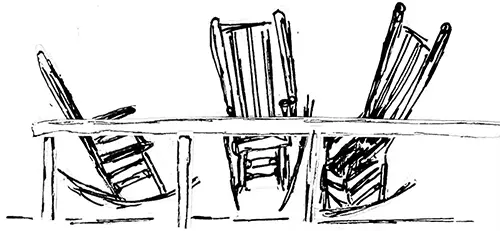Jeffrey Bilbro is an Associate Professor of English at Grove City College. He grew up in the mountainous state of Washington and earned his B.A. in Writing and Literature from George Fox University in Oregon and his Ph.D. in English from Baylor University. His books include Words for Conviviality: Media Technologies and Practices of Hope, Reading the Times: A Literary and Theological Inquiry into the News, Loving God’s Wildness: The Christian Roots of Ecological Ethics in American Literature, Wendell Berry and Higher Education: Cultivating Virtues of Place (written with Jack Baker), and Virtues of Renewal: Wendell Berry’s Sustainable Forms.
Jeffrey Bilbro
Articles by Jeffrey Bilbro
Love, Tyranny, and Names
“In Defense of Jane Austen.” Dwight Lindley III responds to a recent controversy over Austen and suggests that we follow her own example in resisting reductive accounts of other people.…
The Restorative Tonic of Wildness
Particularly in a culture that values comfort and convenience, we need to listen to those who have encountered wilderness with the humility and attentiveness necessary to receive its instruction.
Truth, Dedication, and Wonder
“The Cross and the Machine.” Paul Kingsnorth narrates his unlikely conversion to Christianity in a very Porcher key: I realized that a crisis of limits is a crisis of culture,…
Mother Trees, Vaccines, and Charles Péguy
“Finding the Mother Tree: An Interview with Suzanne Simard.” In this interview with Emergence Magazine, Simard talks about her work on fungal networks and forest cooperation, and she also describes her…
Associational Life, Liberal Arts Farmers, and Forgiveness
“Bread and Circuses: The Replacement of American Community Life.” Lyman Stone has a lengthy new report on recent shifts in American associational life: “The future of associational life in America…
Summer Distributism Discussion
This summer Laurie M. Johnson, Professor of Political Science and Director of the Primary Texts Certificate at Kansas State University, will be leading an online seminar discussing distributist texts and…
Mass Uprooting, Guilds, and the Classics
“The Turning Point.” Carlo Lancellotti draws on the work of Italian philosopher Augusto Del Noce to supplement recent sociological descriptions of our individualistic society: “Del Noce argued that in a…
Infrastructure, Our Towns, and Opioids
“The American Jobs Plan Will Make Our Infrastructure Crisis Worse.” Over at Strong Towns, Charles Marohn has a multi-part essay responding to Biden’s infrastructure bill. Chuck gets to the root…
A Book Club for Cooperatives
A few months ago, we posted an invitation to participate in a virtual book discussion. That group is now hosting a discussion of a second book. Below is Zac Blanchard's…
Current, Infernal Liberty, and Barry Lopez
“Rooting for the Future.” Current, a new website edited by FPR fellow-travelers Eric Miller and John Fea, is now live. Eric describes his vision for the website in his opening essay. Also…
Small-Town News, a New MFA, and the CSA Boom
“How Can We Encourage Doctors to Come Home and Serve Well?” Nicholas Brennecke draws on Wendell Berry to consider how the medical profession might encourage young doctors to serve their…
Aesthetics, Infrastructure, and the Rule of St. Benedict
“A Common Good Conservatism for the Common Man.” Anthony Hennen reviews a new edition of The Autobiography of Calvin Coolidge and praises Coolidge as “a standard-bearer for a certain strand of American…
Small Colleges, Hank the Cowdog, and Phatic Protest
“Small-Town Natives Are Moving Back Home.” Gracy Olmstead writes about several college-educated young people choosing to move back to their hometowns, and she points to the work of organizations like…
Local History, Local Conservatism, and Local Pharmacies
“How Local History Can Save America: The Crucifixion and Resurrection of Frederick Douglass.” John W. Miller recommends an essay about the place where Frederick Douglass fought Edward Covey to a standstill. He…
Tending the Soil of our Homes: Gracy Olmstead’s Paean to Roots
At the heart of Gracy Olmstead's book is the conviction that roots do not just serve the individual person or plant—they also are vital to the health of one’s soil,…
Trades, the Digital Public Square, and Conservative Environmentalism
“Arguing with Success.” Rory Groves writes about how his dissatisfaction with the business model of the tech industry led him on a quest for more meaningful work: “Weary (and wary)…
Seeds, Meritocracy, and Kazuo Ishiguro
“Words and Flesh: Pastoring in a Post-truth World.” In this wise essay, Kurt Armstrong begins with Siddhartha Mukherjee’s The Emperor of All Maladies: A Biography of Cancer, which narrates the long…
Right to Repair, Outrage, and Defining Progress
“John Deere Promised Farmers It Would Make Tractors Easy to Repair. It Lied.” Jason Koebler and Matthew Gault investigate to see whether John Deere followed through with its promise to…
Local Democracy, Resilient Agriculture, and the Classics
“Vermont’s Superpower, Revealed: The Ability to Practice Local Democracy.” Susan Clark writes about the formative role that Vermont’s annual town meetings play in training citizens to practice democracy. (Recommended by…
Tech Critique, Simone Weil, and Visceral Lending
We've got a cover and table of contents for the spring issue of Local Culture. If you're a subscriber, you can expect to get your copy in March. If you're…
Friendship, GameStop, and James Herriot
"Eric Gill and the Integrity of Work." In a new preface to an edition of Gill's writings, Wendell Berry identifies the endemic flaw of industrialized technology: "Under the rule of…
Prospects for Localism (and a New Podcast)
This recording also serves as the inaugural episode of the Brass Spittoon, a new podcast from the Front Porch Republic. We’ll chew on issues timeless and timely, with a focus…
Housekeeping, Epiphany, and a National Elite
“America’s Biggest Owner Of Farmland Is Now Bill Gates.” Ariel Shapiro writes about the massive consolidation of land ownership. Gates is focusing on farmland, but other billionaires own even more…
Precedents, Technosolutionism, and A Hidden Life
“Why I Choose Rural.” Benya Kraus explains why she chose to move to rural Minnesota after graduating from college: “Though I spent my childhood summers and winters here on the…



